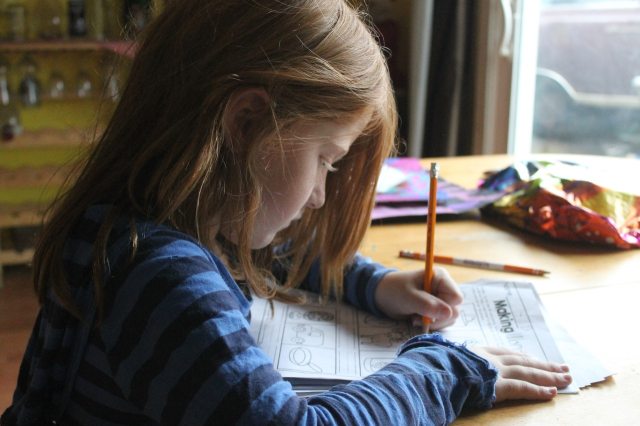Your kiddo comes home, tosses their backpack down and takes what could easily be three hours’ worth of homework out and throws it onto the kitchen table. Oh, and they’re only in second grade. You, being the ever-loving mama that you are, offer to help in any way you can (that is if you can figure out the math equations that your 7-year-old is supposed to know how to do). Even though you might think you’re only doing good for your little learner, a new study found that maternal homework help may have negative consequences.
The study, published in the journal Learning and Instruction, looked at 365 children in grades 2 through 4. Researchers found a connection between mothers (not just parents or caregivers, but mothers specifically), the type of help they offer and what is considered “task-persistence.” Task-persistence refers to exactly what you would think—the ability of the child to persist while working on the task at hand.
Photo: pixabay.com
As it turns out, the mothers that gave more help had children with less task-persistent behaviors. That means the more work the mamas did, the less their kids tried. This, kind of obviously, made the mothers work even harder to help. But the mothers who helped the least and gave their children the chance to work independently seemed to foster higher degrees of task-persistence. Hmm.
While the researchers don’t have an exact reason for their findings, it’s thought that offering too much help may send the wrong message. Basically, helping your child with their homework all the time may be saying, “You can’t do it alone, so I have to step in and do it for you.”
So what should you do? Help or not help? When it comes down to it, each child is an individual. While this study certainly brings up an interesting point, you need to do what’s right to meet YOUR child’s needs.
—Erica Loop
Featured photo: pexels.com
RELATED STORIES:
Google Wants to Help Kids With Their Homework in the Best Way
Why Skipping Homework Could be the Key to Successful Students
This Is the Best Way to Calm an Anxious Child, New Research Confirms











